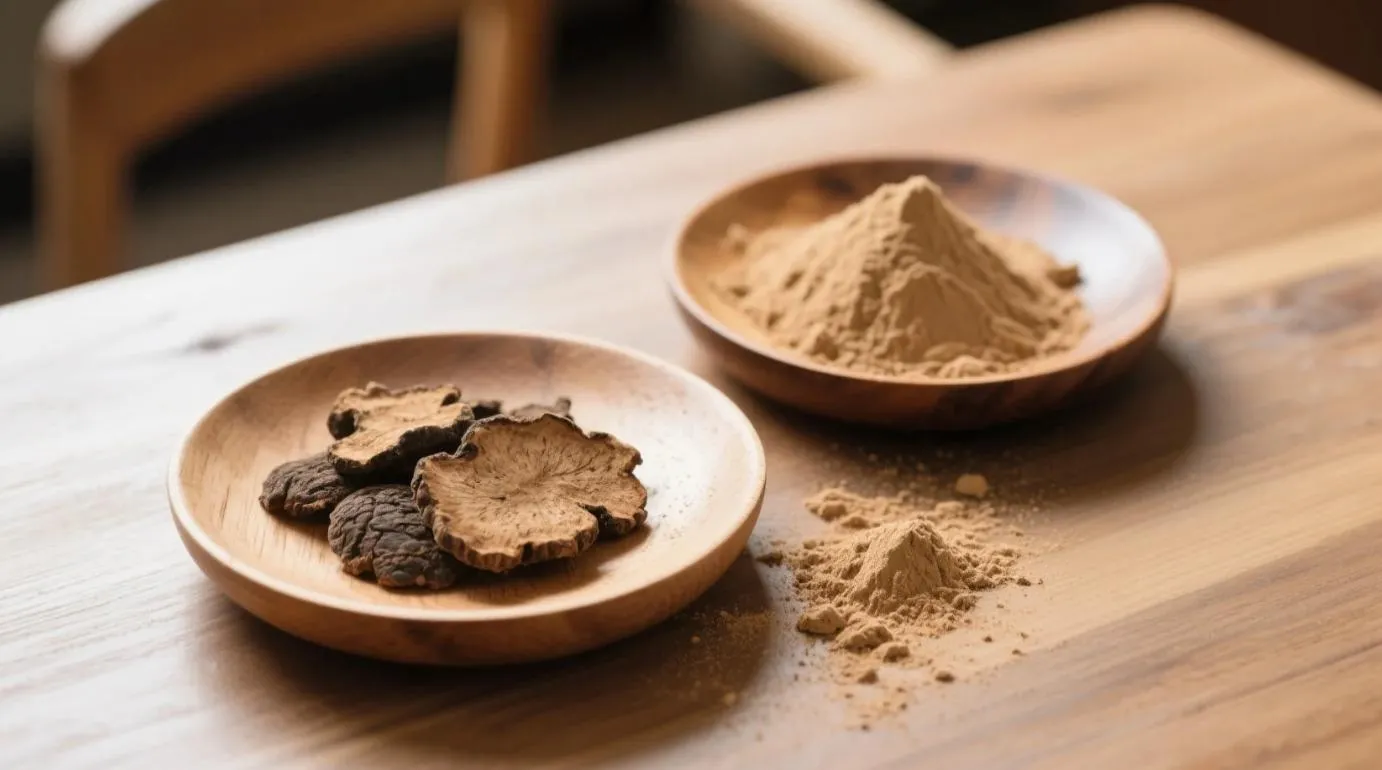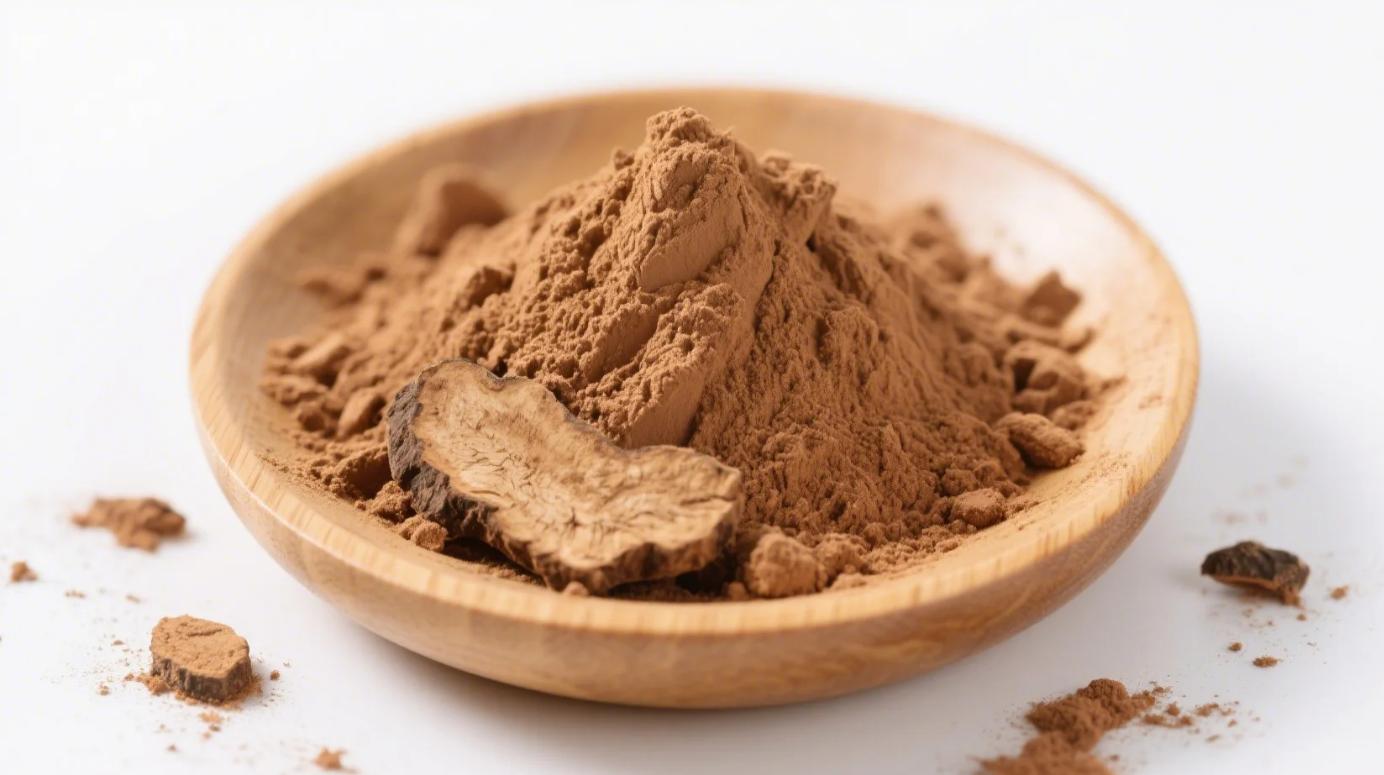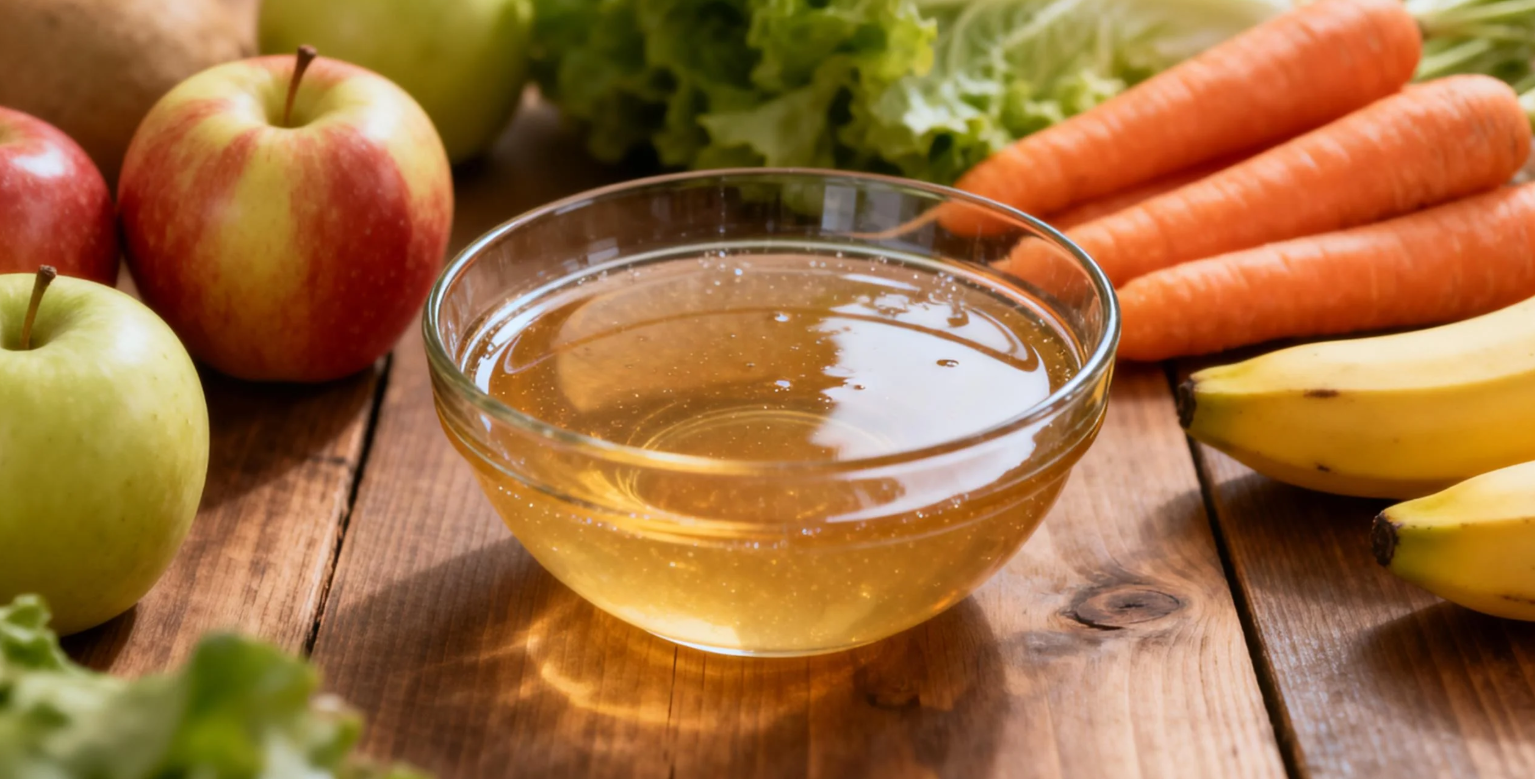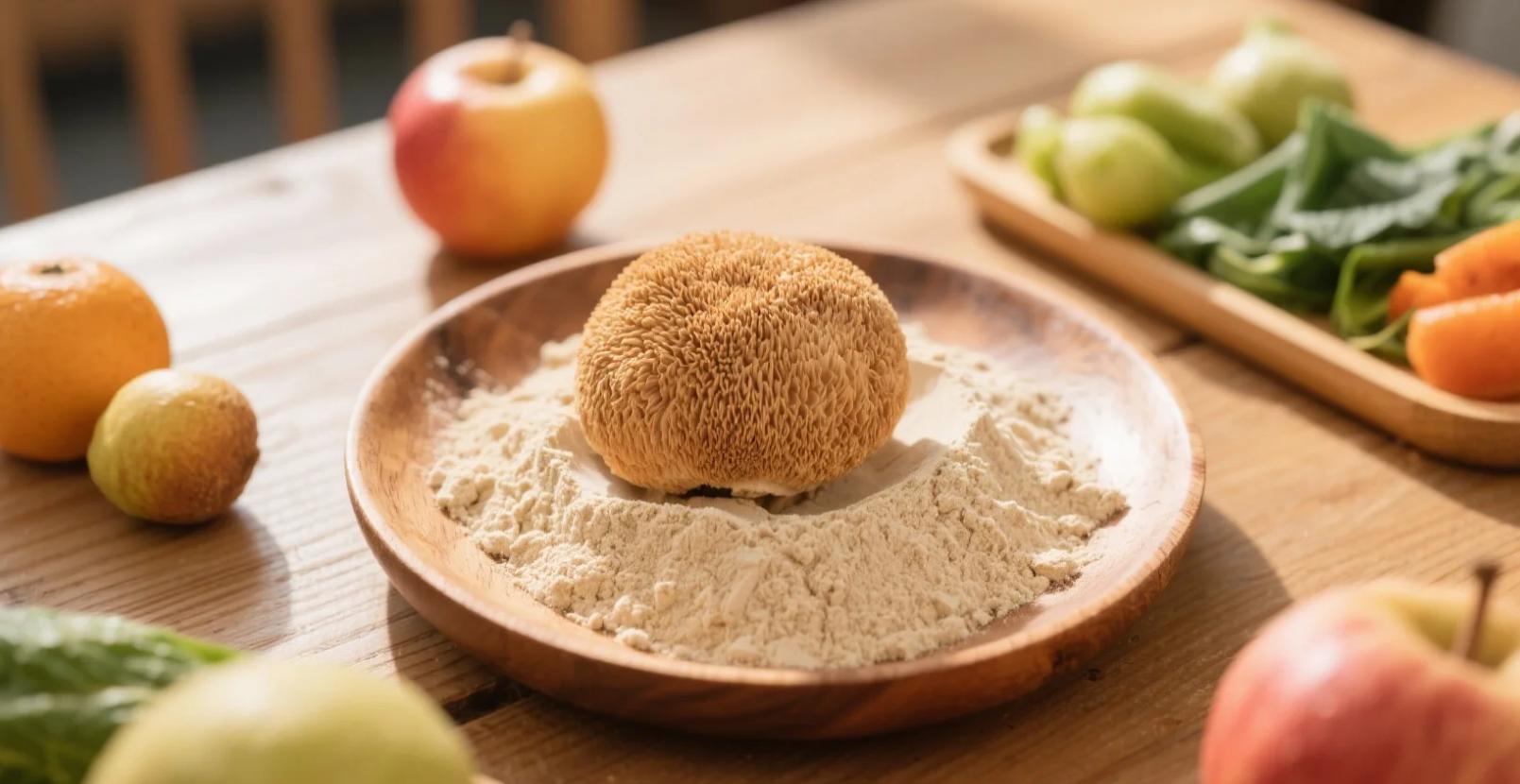Table of Contents
Organic chaga extract powder and raw chaga powder (Inonotus obliquus) are revered for their immune-enhancing beta-glucans and antioxidants. Yet, this birch-dwelling fungus carries underdiscussed risks—from kidney strain to bleeding disorders. Backed by clinical data, here’s how to harness its benefits without harm.

1. Science-Backed Side Effects of Chaga
A. Kidney Stress
- Oxalate Overload: Chaga contains 2,500mg oxalates per 100g—8x more than spinach. Long-term use risks calcium oxalate stones, especially in predisposed individuals.
- Case Study: A 2024 Nephrology report linked daily chaga tea to recurrent kidney stones in a vegan patient.
B. Blood Thinning
- Anticoagulant Interaction: Chaga’s betulinic acid inhibits platelet aggregation, raising INR levels in warfarin users (Thrombosis Journal, 2023).
- Surgery Risk: Discontinue 3 weeks pre-op to prevent hemorrhage.
C. Blood Sugar Swings
- Hypoglycemia: Chaga extract lowers fasting glucose by 22% in diabetics—dangerous if combined with insulin.
D. Autoimmune Flares
- Immune Overstimulation: Polysaccharides may upregulate Th1 cytokines, worsening active lupus, RA, or MS.
E. Allergic Reactions
- Cross-Reactivity: 15% of mold allergy sufferers develop rashes, wheezing, or GI distress.
2. Extract vs. Raw Powder: Risk Comparison
| Factor | Organic Chaga Extract Powder | Organic Chaga Powder |
|---|---|---|
| Oxalate Content | Higher (concentrated via extraction) | Lower (whole fungus, less processed) |
| Potency | 10:1 beta-glucans → stronger immune boost | Mild, gradual effects |
| Drug Interaction Risk | Higher (bioactives concentrated) | Lower |
Key Insight: Extracts intensify benefits and risks; powders suit cautious users.
3. Who Should Avoid Chaga?
- Kidney Disease Patients: Especially those with oxalate stones or CKD.
- Diabetics on Meds: Risk of dangerous hypoglycemia.
- Pregnant/Breastfeeding: No safety data; avoid due to immune-modulating effects.
- Bleeding Disorders: Hemophilia, von Willebrand disease.
4. Safe Usage Guidelines
- Dosage:
- Extract: 200–500mg/day (cycle 5 days on, 2 off).
- Powder: 1–2g/day (brewed as tea, strained to reduce oxalates).
- Hydration: Drink 3L water daily to flush oxalates.
- Lab Tests: Monitor creatinine, INR, and fasting glucose if using long-term.
5. Safer Alternatives for Immune Support
- For Kidneys: Turkey tail mushroom (low oxalate, high PSP).
- For Blood Sugar: Berberine + cinnamon.
- For Autoimmunity: Medicinal mushrooms like reishi (milder immunomodulation).
6. Quality Checks to Reduce Risks
- Oxalate Testing: Choose brands certifying <100mg oxalates per serving.
- Dual Extraction: Alcohol-water process removes 40% oxalates while preserving beta-glucans.
- Heavy Metal Reports: Ensure <0.1ppm lead (common in wild-harvested chaga).
The Final Verdict
Organic chaga extract and powder are potent but double-edged tools. While their immune-boosting prowess is legendary, the oxalate and bleeding risks demand respect. Consult a nephrologist or integrative MD before use if vulnerable—and always prioritize third-party tested, low-oxalate brands. Remember: even “natural” doesn’t mean “risk-free.”
Related Products
Organic Chaga Mushroom Powder
Use Part: Fruit Body


